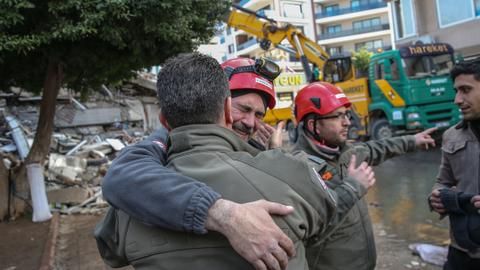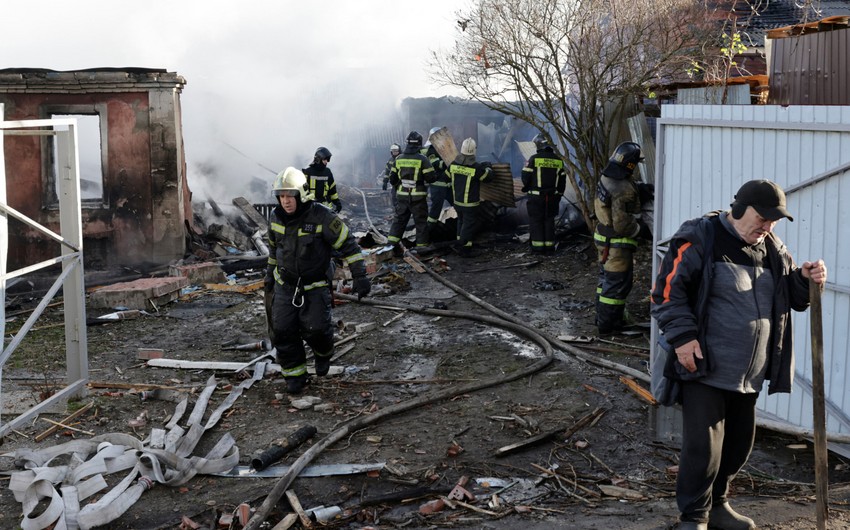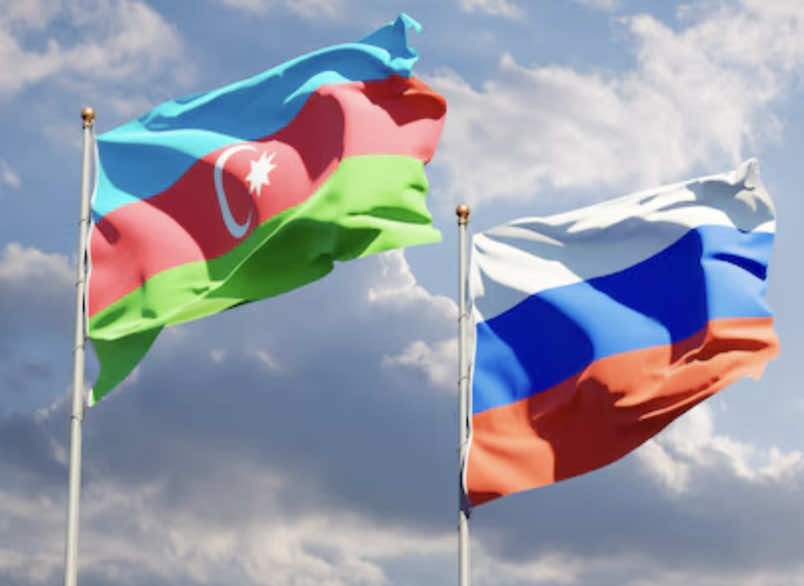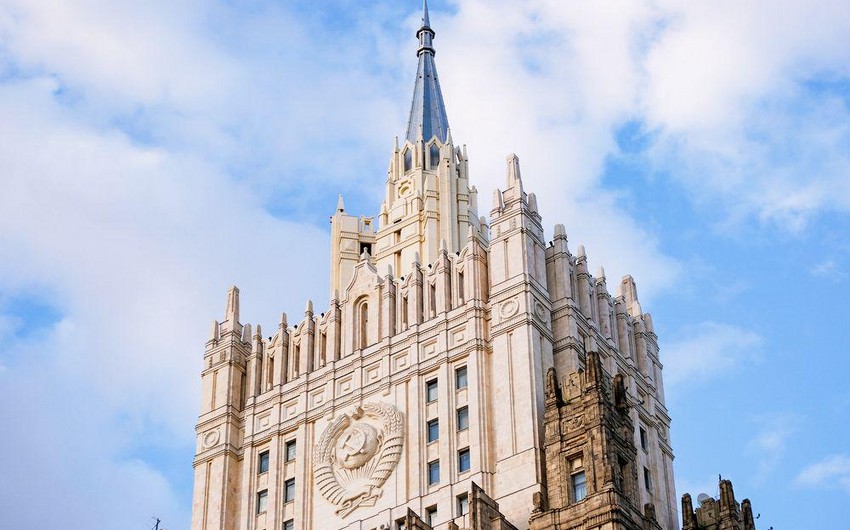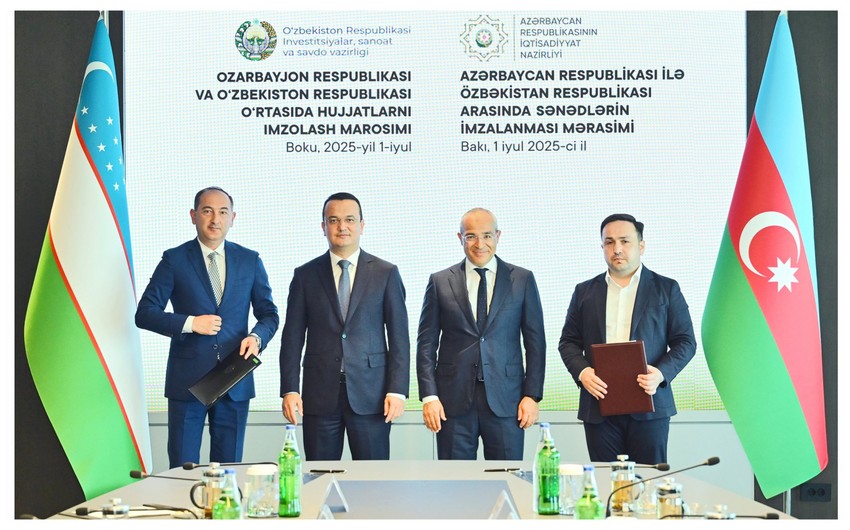The French hate pamphlet continues to spread its message of hatred, stopping at nothing, even mocking the victims of the devastating earthquake in Türkiye.
There are some things that are so patently wrong and grotesque that it takes a particular breed of soulless, hateful human to think it acceptable – or even funny. Of course, I am here referring to the tasteless French satirical magazine Charlie Hebdo’s recently published cartoon that made fun of the thousands of Turkish and Syrian victims who perished or were made homeless and destitute in the aftermath of the deadly earthquakes that struck the region, with its epicentre in Türkiye’s southern city of Kahramanmaras.
Naturally, and very appropriately, this action has been met with widespread criticism and outrage, as it is obviously understood by all and sundry to be insensitive, inappropriate, and motivated by racist and anti-Muslim tendencies that are deeply ingrained in French society.
Le dessin du jour, par #Juin pic.twitter.com/kPcEqZDocO
— Charlie Hebdo (@Charlie_Hebdo_) February 6, 2023
France’s history of Muslim hatred
First, it is important to note the aftermath of French colonialism and the long history of racist attitudes towards Muslims, even French citizens, in France itself. Imperial France once ruled over vast territories in North Africa and the Middle East, and its legacy of racist colonialism has left deep wounds that have yet to heal. This includes entrenched racism and prejudice against Muslims, many of whom still face discrimination in France today – discrimination that is promoted at the very top of the French government by none other than President Emmanuel Macron.
Syria was directly ruled by the French, who spent more than a quarter of a century between 1920-1946 brutalising the Syrian people and attempting to annihilate their sovereignty and right to self-determination. This history of colonialism and racism has filtered into today’s modern French society, dehumanising Muslims, and making magazine editors such as those who work for Charlie Hebdo think that this sort of despicable stunt is appropriate. It has also made the Turkish and Syrian earthquake victims particularly vulnerable to this kind of insensitive and hurtful “satire” that seeks to gain cheap laughs out of the still flowing wounds of the innocent.
Moreover, the magazine's actions are obviously a manifestation of rampant hatred for Muslims. The rising anti-Muslim sentiment is a growing problem in France and many other Western countries, characterised by a totally irrational fear and hatred of Islam and Muslims. This fear and hatred is often fuelled by negative stereotypes and misinformation, and it is a major contributor to the marginalisation and discrimination faced by Muslims, not only in France but even further afield.
By making fun of the Turkish and Syrian earthquake victims, Charlie Hebdo is not only perpetuating these negative stereotypes, but it is also contributing to the already widespread anti-Muslim hatred in France and beyond. Take, for example, the caption referenced in the caricature: the cartoonists take particular glee at the destruction wrought against largely Muslim people, and explain how they “didn’t even need to send tanks”. In other words, they are giddy with delight to see destruction inflicted upon Muslims the likes of which a devastating war would bring.
Cry for France, but laugh at Muslims
Making fun of people in the aftermath of a tragedy is never acceptable, regardless of their religion or ethnicity. For example, when Charlie Hebdo itself was attacked in 2015, Turks, neither at state level nor even on a social level, did not engage in wholesale mockery. To the contrary, it dispatched its top diplomat to Paris in a show of solidarity with France against terrorism.
The victims of yesterday’s earthquake have suffered great loss and trauma, and they deserve to be treated with dignity and respect. Making fun of their suffering is not only vile, but it also sends a message that their lives and experiences are not worth valuing or respecting, and neither are those of their families and loved ones. This kind of message is particularly harmful in the context of French and wider Western society that is already deeply divided along racial and religious lines.
Satire is a powerful tool, and it can have a profound impact on the people it targets, as well as public perceptions. Satire is often used to challenge power and to expose injustice and hypocrisy. However, when satire is used to make fun of people who are already marginalised and vulnerable, it only serves to further harm them. This is especially true when the people being targeted are the victims of a tragedy, as they are already in a state of extreme vulnerability and distress, and punching down on the vulnerable is never a good look, not to mention woefully immoral.
Then again, this is hardly new to Charlie Hebdo, a truly disgusting publication that even thought it was both appropriate and funny to make jokes about Italian earthquake victims as different types of pasta in 2016. Also in 2016, who can forget how the magazine showed they lack anything remotely resembling humanity and decency when they made fun of the corpse of two-year-old Alan Kurdi, a Syrian refugee who drowned in the sea as his family attempted to escape war and bloodshed.
On the flip-side, Charlie Hebdo wanted the entire world to cry with it and France when they were subjected to attack, but feel it is appropriate to plumb moral depths that include laughing at death and destruction afflicting Muslims. When anyone is that morally bankrupt, I think it is safe to say that magazines like Charlie Hebdo are nothing more than a cheap rag designed to get laughs out of the likes of far-right fascists who revel in Muslim blood.
While Kahramanmaras is literally named for its heroism – a virtue it currently has on full display and that is replicated across the entire disaster zone – Charlie Hebdo will forever go down in history for its villainy. And, despite all the pain we are all feeling, that is an equation I can live with.

